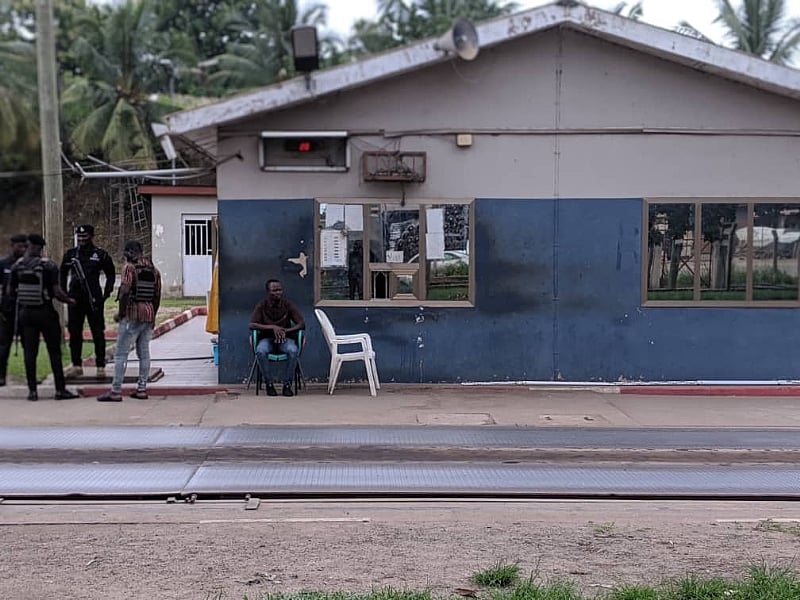The integrity of Ghana’s road infrastructure and revenue collection system is under threat due to an illicit takeover of several Axle Load Stations across the Ashanti, Eastern, and Bono Regions. A network of individuals, described as politically connected, have forcibly removed legitimate staff and assumed control of these stations, effectively diverting public funds into private pockets. Eye-witness accounts reveal a pattern of intimidation and threats, creating an environment of fear and silencing those who might otherwise report these illegal activities. The brazen nature of these seizures and the apparent inaction by relevant authorities, including the Presidency, Ministry of Roads and Highways, and the Ghana Highways Authority, raise concerns of high-level complicity or a deliberate disregard for the rule of law. This unfolding situation not only represents a significant loss of revenue but also undermines public trust in government institutions and threatens to erode the current administration’s achievements in economic stability and development.
The implications of this illegal activity extend far beyond financial losses. The Axle Load Stations play a crucial role in protecting Ghana’s road network. Their mandate includes enforcing weight limits to prevent premature road degradation, enhancing road safety by reducing accidents caused by overloaded vehicles, and ensuring compliance with transport regulations. The revenues generated by these stations, though modest, are earmarked for routine maintenance, contributing to the longevity and safety of the road system. The disruption of these operations will inevitably accelerate road deterioration, increase transport costs for businesses and individuals, and ultimately burden the national budget with higher repair expenses. This, in turn, risks undermining the government’s efforts to maintain fiscal discipline and invest in other critical sectors.
Furthermore, the apparent lack of accountability and the alleged protection afforded to these individuals paint a troubling picture of impunity. Sources point to a central figure, a woman referred to as the “Queenpin,” who orchestrates the takeovers and controls the flow of illicit funds. Her identity, known within the sector, offers a clear starting point for a thorough investigation. The inaction by authorities, however, fuels speculation of high-level involvement or a culture of indifference that allows such criminal enterprises to thrive. Such inaction not only emboldens the perpetrators but also sets a dangerous precedent, signaling that those with political connections can operate outside the law without consequence.
This situation mirrors past instances in Ghanaian politics where politically affiliated individuals have seized public assets, including toilets and government offices, for personal gain. These acts of lawlessness have historically eroded public trust and contributed to political instability. Observers warn that the current situation, if left unchecked, could follow the same trajectory, leading to public anger, economic damage, and political repercussions for the current administration. Ignoring this growing crisis risks jeopardizing the government’s hard-won progress and credibility. The government’s silence and inaction create an environment ripe for further exploitation and embolden those who prioritize personal gain over public welfare.
The urgent call to action comes from within the affected sectors. Concerned officials and employees are pleading for intervention from the highest levels of government, including the President, the Ministry of Roads and Highways, and the Director of the Ghana Highways Authority. They emphasize the need for a swift and decisive response, involving the security agencies, to restore order and hold the perpetrators accountable. Delaying action will only exacerbate the problem, allowing it to become more entrenched and more costly to address. Beyond financial repercussions, the government risks losing the public’s confidence, a crucial component of any successful administration.
Ultimately, the illegal takeover of these Axle Load Stations represents a significant test for the government’s commitment to the rule of law and its ability to protect public assets. The inaction of relevant authorities raises serious questions about their commitment to transparency and accountability. Failure to address this issue decisively will not only have immediate financial consequences but also long-term implications for Ghana’s political stability and development trajectory. The government must demonstrate a commitment to upholding the law and protecting the public interest by launching a comprehensive investigation, prosecuting those responsible, and implementing measures to prevent similar occurrences in the future. The future of Ghana’s infrastructure and the public’s trust in its government hang in the balance.


